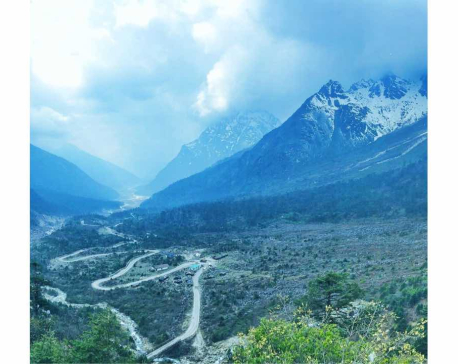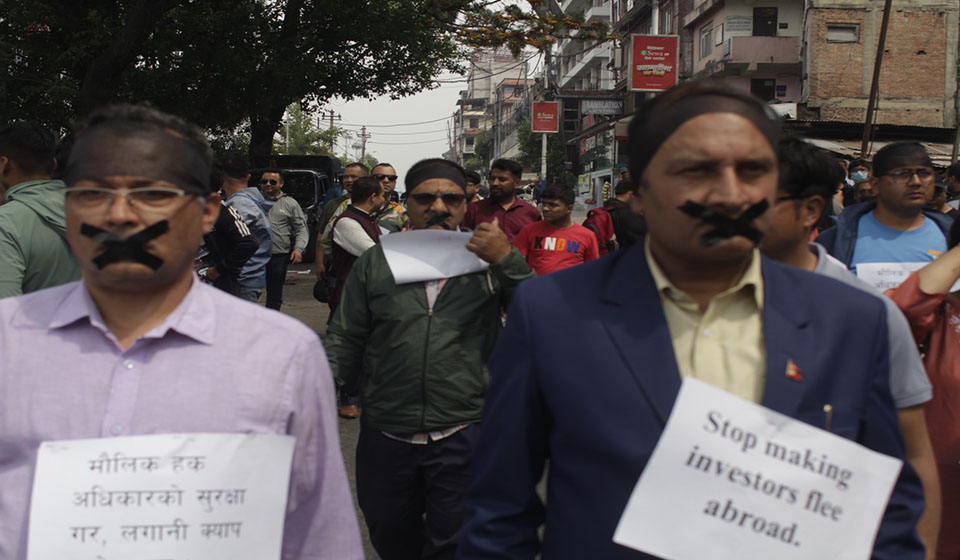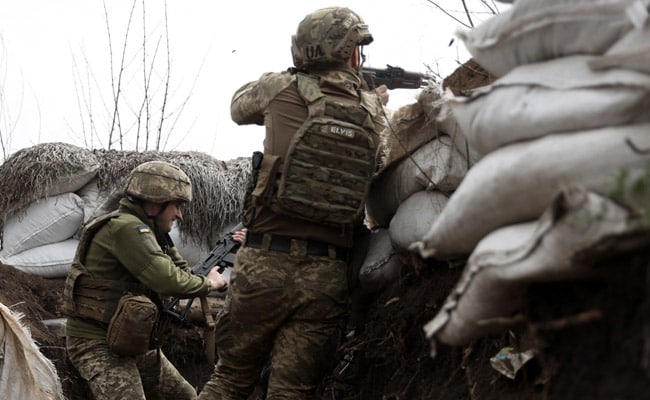
OR
BLOG
An urgent plea to protect healthcare providers
Published On: September 28, 2023 10:00 AM NPT By: Dr Jimmy Kayastha


Dr Jimmy Kayastha
The author is an oral and maxillofacial surgeon trained in the US and contributes his expertise to the healthcare realm in Nepal.news@myrepublica.com
In Nepal, the distressing surge in violence against healthcare professionals has plunged us into a pressing crisis that demands our undivided attention. Within the walls of healthcare facilities, from inpatient wards to emergency departments, incidents of workplace violence have spiked alarmingly, leaving our dedicated healthcare workers exposed to the harsh realities of verbal abuse and physical aggression. This vulnerability not only fuels burnout among our medical staff but also chips away at their sense of security, eroding the very foundation of our healthcare system.
Despite our healthcare sector's elevated risk of workplace violence, we are dismayed to find a gaping void in clear, healthcare provider-focused prevention and response protocols. The current approach hinges on heightened security measures and FYI alerts, but these strategies, regrettably, offer only limited effectiveness. To counter this escalating issue, our healthcare institutions must wholeheartedly embrace early identification and intervention, potentially through the introduction of Behavioral Emergency Response Teams (BERTs), which show promise in curtailing violent incidents.
This surge in violence against our healthcare heroes has ushered in a distressing era marked by an alarming increase in physical assaults, threats, and verbal aggression. This unsettling shift in public perception toward our healthcare providers gnaws at the very trust we place in our healthcare system.
The issue of violence against healthcare professionals is a complex tapestry woven with threads of trust deficits, mounting demands, and the proliferation of misleading information. The digital age, with its benefits and challenges, has placed an added burden on our healthcare providers, who are increasingly tasked with navigating patients’ demands for unnecessary treatments and the delicate task of dispelling misinformation.
Effectively addressing this critical problem mandates a multifaceted approach. Our strategies must include the creation of weapon-free zones at our hospitals, equipping our healthcare workers with protective skills, and enforcing stricter penalties for assaults on medical personnel.
In Nepal, this distressing epidemic of violence against healthcare providers beckons us to take comprehensive action. This issue, woven into a complex web of factors including patients’ frustration, staff shortages, and communication gaps, underscores the urgency of change. While investments in healthcare infrastructure can enhance the patients’ experience and reduce tensions, communication training can empower our professionals to navigate conflicts effectively.
In this crucial endeavor, we earnestly call upon the Nepal Medical Association, our hospital leaders, and our government to unite with unwavering determination. Together, we must formulate comprehensive protocols, raise public awareness, and provide unwavering support to our healthcare professionals as they face the emotional challenges of these trying times. Let us collectively elevate the safety of our healthcare heroes, not merely as a priority but as the very bedrock of our national healthcare commitment. In the face of adversity, it is unity, empathy, and resolute determination that will guide us toward a future marked by safety and compassion for all.
You May Like This

Only Endemic Bird of Nation Calls for Conservation Action
Have you ever seen or heard the unique call of Spiny Babbler (Kaande Bhyakur)? Often hidden within dense scrublands, its... Read More...

Reflecting on a festive journey filled with memories and growth
Twenty-six years ago, amidst the serene settings of Forestry College in Hetauda, the Dashain festival vacation was a moment brimming... Read More...

The Importance of Natural World: The Sooner We Realize the Better
I had an opportunity to visit the northern part of Sikkim recently: the enthralling and captivating beauty of Lachung, Yumthang... Read More...


Just In
- NEA schedules five-day power cut across Kathmandu Valley for underground cable installation
- Hundreds of passengers including foreign tourists in distress as poor visibility halts flights to and from PRIA
- Nepal clinches thrilling victory over West Indies 'A' in T20 cricket match
- Capital Market Struggle Committee stages protest demanding protection of domestic investors (Photo Feature)
- Captain Paudel scores half-century in T20 match against West Indies 'A'
- Nine youths from Tanahu allegedly joining Russian army out of family contact for months
- West Indies 'A' sets Nepal a target of 205 runs
- Parliamentary committee directs govt to provide electricity tariff subsidies to cold storage facilities










-1200x560-wm_20240427144118.jpg)





Leave A Comment